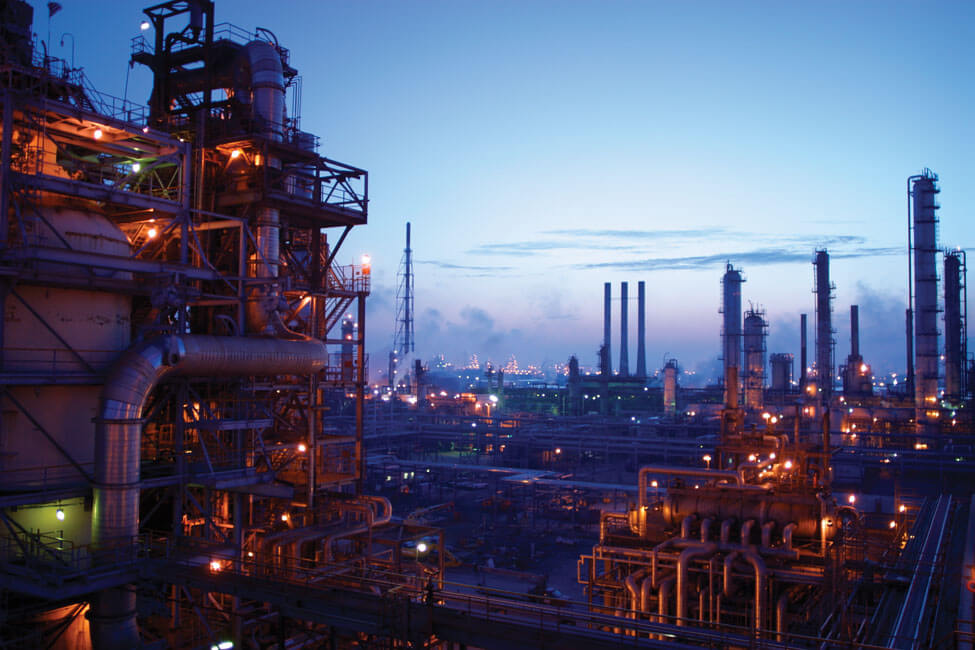 At the process unit level, the mass balance is particularly important, as the charge and yield measurement streams serve as the basis for operational decision-making. When imbalances occur, process unit engineers can’t optimize their units with confidence.
At the process unit level, the mass balance is particularly important, as the charge and yield measurement streams serve as the basis for operational decision-making. When imbalances occur, process unit engineers can’t optimize their units with confidence.
The good news is there are ways to mitigate these measurement uncertainties and improve balances. Strategically placed flow meter technology has been shown to alleviate these issues without the need for a total system overhaul. Process unit and instrumentation engineers have the option to perform inspections and calibrations of their current meters or upgrade to more modern technologies. With decades of experience and in-depth knowledge of industry leading solutions, the Emerson Mass Balance Consulting Studies can also help you vastly enhance the accuracy of your data by performing a site evaluation and partnering with your team to optimize your process.
Process Unit Mass Balances in Refineries – What’s at Stake?
Each refinery has its own unique setup and arrangement of process units. Calculating mass balances to monitor the performance of all units is important. For some of these units, like the fluidized catalytic cracker and the Coker, achieving the ±1-2% target for mass balancing can be difficult. For example, due to the challenges with measuring the Coke product, the Coker can often have an imbalance of ±5%. The unit imbalance results in poor data quality that can impact validating performance guarantees, successful implementation of advanced control strategies, closing the gap between planned and actual performance of the operating plan, and identifying unit constraints. Unreliable data has a snowball effect, throwing off your efforts at optimization of unit performance.
In addition, if you are unknowingly operating outside of maximum flow ranges, you are also risking the reliability of your equipment as well as permitting issues. This amplifies safety risks to your operators and potentially adds unforeseen maintenance costs in the form of wear and tear on the units. Achieving an accurate mass balance is essential for any refinery working to continuously improve safety as well as performance.
Steps to Improvement Mass Balances
To improve process unit mass balances, we need to understand where these measurement uncertainties come from. One source can be traced to the implementation of differential pressure (DP) flow meters at mass balance points of critical process units. DP flow meters are the most common flow technology used in refineries – for good reason. They are cost-effective and extremely versatile, offer good measurement repeatability and can handle a wide range of applications, including corrosive fluids, saturated or superheated steam, and gas. However, using traditional DP flow meters for mass balance applications can result in several inaccuracies.
One way to improve your unit mass balance is to perform troubleshooting and upkeep on your traditional DP flow meters to maintain performance. These maintenance procedures involve inspecting the orifice plate condition, checking the installation and condition of its connection hardware, and reviewing and calibrating the transmitter. Each of these steps can be tedious and time consuming for each meter. For example, checking the installation and condition of the connection hardware involves checking the impulse lines are equally filled with fill fluids for liquid measurement applications, ensuring proper straight run requirements are met, and checking that the temperature and pressure readings are taken near the plate. This is important because the meter accuracy is sensitive to changes in process conditions and fluid properties. As such, the meter correction factors need to be corrected for the difference between actual process conditions and design conditions.
Converting from volumetric to mass flow with a traditional DP flow meter can be tedious and require additional data that may not be readily available. When measuring a pure fluid, where density is known, and process conditions don’t change significantly from design, DP meters provide reasonable accuracy. However, that is not typically the case. Temperature and pressure changes affect all the coefficients used to convert differential pressure to flow. Fully compensated transmitters, such as the Rosemount 3051SMV can compensate for these changes. However, many of the unit mass balance streams are not pure fluids and the density changes not only because the temperature and pressure have changed, but because the composition has changed as well, resulting in measurement inaccuracies. Manual sampling is often used to determine density and frequently changing compositions of fluids make these measurements less reliable. DP meters are not able to automatically correct for changes in density due to these composition changes. An online densitometer like the Micro Motion Fork Density meter can be added to the measured flow stream to provide a more continuous density measurement that can then be used to correct the flows in the DCS and used in the mass balance calculations.
For your most critical mass balance points, like your unit charge meter, the best way to improve accuracy is to use a Coriolis meter which directly measures mass and requires no compensation regardless of changing process conditions or fluid properties.
Cultivating Confidence in Your Mass Balance Measurements
If validating every one of the meters in a process unit sounds like a huge endeavor, you aren’t wrong. One strategy you can employ is to take this process step-by-step. Define the boundaries of your input and output streams. Check on the technology at the inputs and outputs of the boundary, including the condition of the meters. Verify they are operating within the normal range, make sure each meter has been installed correctly and their maintenance schedules followed, and double-check all conversions and calculations.
There is a lot involved in this analysis, and you might not have the bandwidth for such an extensive project. If this is the case, you have help. The Emerson Mass Balance Consulting Studies can partner with you to reduce losses and financial risk associated with uncertainty in your mass balance. You can lean on our team of specialists to inspect your whole system, troubleshoot and fine-tune each meter, and help you make decisions to improve your mass balance data. Our team performs field inspections of your equipment, can calculate how much measurement uncertainty contributes as a source of error to your balance, and make recommendations on how to improve your current system or suggest new technologies to implement.
Your mass balance data is a significant piece of the optimization puzzle, and you don’t want to neglect it. If measurement uncertainty is throwing off your data and hurting visibility into your performance, contact us. Benefit from the knowledge and expertise of our Mass Balance Consulting Studies group to gain accurate insight into your refinery, either at the process unit level or plantwide. We’ll work with you to build a roadmap to achieving your mass balance goals.
Learn more about improving your refinery and process unit mass balances here!
